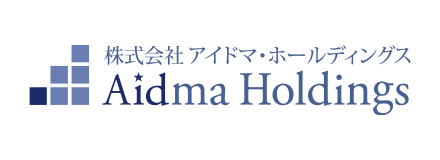試合運営管理規程
浦和レッドダイヤモンズ
サッカー試合運営管理規程
第1条(目的)
本規程は、浦和レッドダイヤモンズ株式会社(以下「クラブ」という)に所属する浦和レッドダイヤモンズ、浦和レッドダイヤモンズレディース、男女アカデミーチーム(以下総称として「チーム」という)が出場する国内外全ての試合において円滑で安全な運営を確保し、且つ、サッカー観戦者、選手、審判、チームスタッフおよび関係者の安全を確保することを目的とする。
第2条(規程の対象)
スタジアム等に入場しようとし、または入場したすべての者に適用される。
第3条(定義)
次の各号に掲げる用語の意義は、それぞれ当該各号に定めるところによる。
- 試合:
- チームが出場する国内外を問わない全ての試合をいう。
- スタジアム等:
- 試合会場がスタジアムであり、スタジアム、その関連施設およびその敷地をいう。
- スタジアム周辺の指定地域:
- 試合の適正な運営のために、違法行為および施設管理者の禁止した行為を行ったことを理由に、クラブがスタジアム等への入場を禁止する措置が取れる区域であり、事前にクラブが指定した地域をいう。
- 主催者:
- スタジアムにおいて、試合を主管し、試合運営の責任を有する者をいう。主催者は、試合によりチーム、およびチームが対戦する相手の試合管理者あるいは試合を主管するリーグ等をいう。
- 運営・安全責任者:
- スタジアム等の全般的安全と運営に責任を有する者であり、クラブ実行委員または代行者、または試合に応じてそれに準ずる者をいう。
- 運営担当・セキュリティ担当:
- 運営・安全責任者の任命を受け、試合の安全確保のため業務に従事する者をいう。
- 警備従事員:
- 試合の安全確保のため、運営・安全責任者が任命した者をいう。
- 運営安全管理者:
- 運営・安全責任者、運営担当・セキュリティ担当および警備従事員を総称する。
第4条(持ち込み禁止物)
スタジアム等に入場しようとし、または入場した者は、運営安全管理者が特に必要と認めた場合を除き、いかなるスタジアム等においても次の各号に揚げる物を持ち込んではならない。
- リーグの定める統一禁止事項または主催者等の定めにより持ち込みを禁止されている物。
- 施設管理者により持ち込みを禁止されている物。
- 以下に該当すると主催者等が判断した掲示板、立て看板、横断幕、のぼり、旗、プラカード、ゼッケン、文書、図面、印刷物等の物。
- (1)政治的、思想的、宗教的主義、主張または観念を表示し、または連想させるもの。
- (2)差別的、侮辱的な内容、表現を含むもの。
- (3)選手やチームを応援または鼓舞する目的が認められないもの。
- (4)大会の運営に支障を及ぼすおそれがあるもの。
- 企業名や製品名等、特定の企業または団体の宣伝的要素が表示された物(これらを連想させる物を含む)。
- 上記各号にかかわらず、クラブ又はその対戦相手や主催者等により持ち込みを禁止されている物。
- その他試合の運営または進行を妨害し、他人に迷惑または危険を及ぼすなどのおそれがあると運営担当・セキュリティ担当または警備従事員が認める物。
第5条(禁止行為)
スタジアム等に入場しようとし、または入場した者は、運営安全管理者が特に必要と認めた場合を除き、いかなるスタジアム等においても次の各号に揚げる行為をしてはならない。
- リーグ統一禁止事項または主催者等の定めにより禁止されている行為。
- 施設管理者により禁止されている行為。
- クラブが特に定めた禁止行為。
- 正当なチケットまたは通行証を所持せず入場する行為。
- 抗議集会、デモなど大会の円滑な運営を阻害するおそれのある行為。
- アルコール、薬物その他物質の影響により他人に迷惑を及ぼす行為を行う恐れ、または運営安全管理者の指示にしたがうことが困難である状態でスタジアム等に入場する行為。
- スタジアム等に入場後、アルコール、薬物その他物質の影響により他人に迷惑を及ぼす行為を行う恐れ、または運営安全管理者の指示にしたがうことが困難となる状態になる行為。
- 勧誘、演説、集会、布教等、サッカー観戦以外の行為。
- 所定の場所以外に車両(自転車を含む)を乗り入れる、若しくは所定の場所以外に駐車または駐輪する行為。
- 商行為、寄付金の募集、広告物の掲示等の行為。
- 所定の場所以外にゴミその他汚物を廃棄する行為。
- 営利目的で競技、式典、観客等の写真撮影またはビデオ撮影をする行為。
- 試合の音声、映像の全部または一部を、インターネットその他メディアを通じて配信する行為。
- 試合の運営または進行を妨害し、他人に迷惑または危険を及ぼし若しくはそれらのおそれがあると運営安全管理者が認める行為。
- 人種、肌の色、性別、言語、宗教、政治または出自等に関する差別的あるいは侮辱的、若しくはそれらのおそれがあると運営安全管理者が認める発言または行為。
- 上記各号のほか、公序良俗に反する発言または行為。
第6条(スタジアム等において)
スタジアム等に入場しようとし、または入場した者は、次の各号に定める事項を遵守しなければならない。
- チケット、身分証明書、通行証等の提示を求められたときは、これを提示すること。
- 手荷物、所持品等の検査を求められたときは、これに応じること。
- 運営安全管理者または治安当局の指示、案内、誘導等に従い行動すること。
第7条(販売拒否事由)
主催者等は、以下の各号に該当する者に対し、入場券の販売をしない。またその者が自らまたは第三者を通じて入場券を取得した場合、主催者等はその者に対し、本則第10条に基づき入場を拒否することができる。
- 暴力団またはこれに類する反社会的勢力(以下、「暴力団等」という)に所属する者(以下「暴力団員等」という)。
- 暴力団員等でなくなった時から5年を経過しない者。
- 自己または第三者の利益を図る目的等で暴力団等または暴力団員等を利用している者。
- 暴力団等または暴力団員等に対して資金等を提供し、または便宜を供与するなど、暴力団等の維持、運営に関与をしている者。
- 暴力団員等と、社会的に非難されるべき関係を有している者。
- 第8条に違反する行為を目的として入場券を取得する者。
- その他入場券の販売をしないこととする相当の理由があると主催者または主管者が判断した者。
第8条(転売等の禁止)
何人も第三者に対し、主催者等の許可を得ることなく、入場券を転売(インターネットを通じての転売を含む)その他の方法で取得させてはならない。ただし、家族、友人、取引先、その他これらに類する特定の関係に基づき、営利を目的とせず、かつ業として行われない場合については、この限りではない。
第9条(スタジアム周辺の指定地域での禁止行為)
スタジアム等に入場しようとし、または入場した者は、いかなるスタジアム周辺の指定地域においても次の各号に揚げる行為をしてはならない。
- 刑事罰に相当する行為
- ヘイトスピーチ等刑事罰の対象とはならないが民事上の不法行為と評価される行為
- 当該施設管理者が禁止をしている行為
第10条(入場拒否、退場命令)
- 運営安全管理者は、本則第4条、第5条、第6条または第9条に違反した者および本則第7条の規程に該当する者の入場を拒否し、スタジアム等からの退場等必要な措置をとることができる。
- クラブは、第4条ないし第8条に違反した者に対して、当該違反行為によりクラブが被った損害の賠償を請求することができる。
- 運営安全管理者は、本則第1項に該当する者に対し、その後開催される試合についての入場を拒否することができ、またチケットの返還を求めることができる。
- 運営安全管理者により入場を拒否され、またはスタジアム等から退場を命じられた者は、チケットの購入代金の払い戻しを求めることはできない。
- 違反行為に対する処分内容は以下の通りとする。なお、処分の決定は、クラブのコンプライアンス委員会においてその必要があると判断された場合、社外有識者等の助言も踏まえ、クラブが事案ごとに行うものとする。
- A:永久入場禁止
- (本則第3条で定義する試合が実施されるスタジアム等、およびクラブに関連するその他全てのイベント、施設等への今後一切の入場等を禁ずるとともに、REX CLUB会員については会員資格を剥奪するもの)
- B:無期限入場禁止
- (試合数や期間を定めない入場禁止。本則第3条で定義する試合が実施されるスタジアム等、およびクラブに関連するその他全てのイベント、施設等への処分期間中の入場等を禁ずるもの)
- C:試合数を限定した入場禁止
- (試合数や期間を定めた入場禁止。本則第3条で定義する試合が実施されるスタジアム等、およびクラブに関連するその他全てのイベント、施設等への処分期間中の入場等を禁ずるもの)
- D:厳重注意
第11条(付則)
本規程を、2023年10月23日付で改定し、同日より施行する。
浦和レッドダイヤモンズ






















